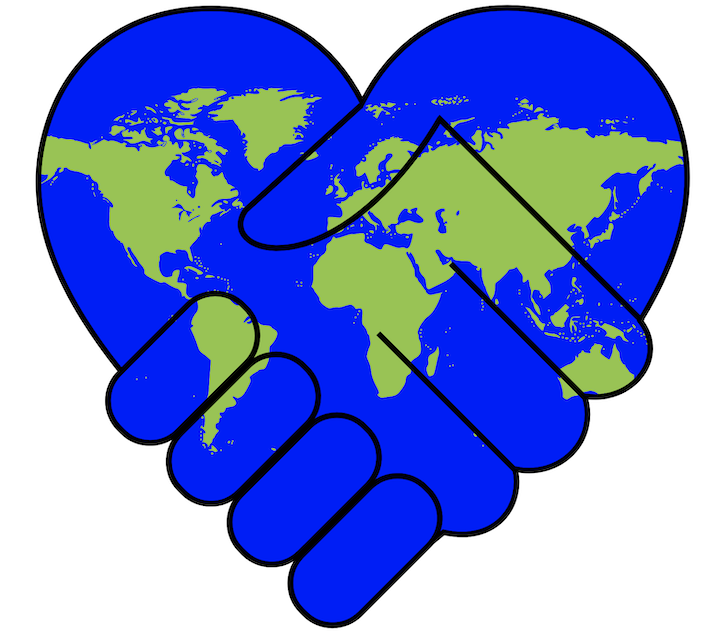World Peace, by GDJ, via OpenClipArt
According to the IPCC (the UN’s scientific panel on climate change), “the time for action is now” if we want to have any chance to prevent global warming above the 1.5-degree Celsius threshold. Yet the only way to halt continued warming is through coordinated global action, which the New York Times notes is “politically unlikely.” Here’s where political science, with its focus on Big Questions and Answers, can help us understand the past issues surrounding our failure to act collectively, and drive policy and action plans for the future.
Here I am focusing on two Big Questions about climate change:
- Why haven’t we (as a global community) been able to solve the problem of climate change?
- What are some ways we (as a global community) can solve climate change in the future, before it’s too late?
Both of these Big Questions stem from another Big Question (perhaps the Biggest Political Science Question of All): How and why do people choose to cooperate and work together? In other words, how and why do human communities make collective decisions?
The question of collective action is important, not only for solving climate change, but for understanding many crucial issues in our political world today—questions of governance and representation; of poverty, inequality, and redistribution; of war and peace.
The reason it is such an important question is because human communities can get better overall results if we work together. And conversely, if we don’t figure out how to work together, usually we receive, on average, much worse results. This insight can be best understood by looking at the ideas of two major political thinkers of the past: Aristotle and Hobbes.

Aristotle, bust by Lysippos, image by Jastrow, via Wikimedia Commons
The Greek thinkers, such as Plato and Aristotle, argued that social cooperation is necessary to achieve the highest good as a human race. Aristotle wrote in his book, The Politics, “Man is by nature a political animal.” What he meant by this was that we as a species have the ability to come together and create a political community, and if we do it right, we can together achieve the “higher good”—in other words, we can achieve more by working together than by working apart.

Thomas Hobbes, line engraving by W. Humphrys (1939), image by Fæ, via Wikimedia Commons
Fast forward a couple thousand years, after events in European history like the Great Famine, the Black Death, and centuries of war—and Thomas Hobbes came along. For Hobbes, man may be a political animal, but he emphasized the animal part of our natures. Hobbes saw men as animals capable of immense violence and selfishness, and without something larger and more powerful to restrain our impulses, the natural state of human existence would be “nasty, brutish, and short.” The solution for Hobbes was to trade liberty for security by living under an absolute leader, which he called “The Leviathan,” which would force people to cooperate and stop killing each other.
In general: Aristotle and Hobbes are both right. “Man is a political animal” AND “life is solitary, poor, nasty, brutish, and short.” And now we’re getting to the basics of political science. Aristotle and Hobbes are two sides of the same coin. It’s all about whether we as a human community can figure out a way to cooperate together to solve important problems.
Life as a member of the human race, at its most basic, is this: resources are scarce. We have to make choices about how to divide these resources, choices on which people don’t agree and that make some people less satisfied than others. These social choices breed conflict. And throughout human history, people have tried to manage these social conflicts in one of two ways: by killing each other, or through politics.
Aristotle leads us toward a successful agreement on climate change. Hobbes is the back-up plan of digging up bodies in the graveyard to eat, in case we don’t figure it out.
So, when someone says to you, “Ugh, I don’t like politics,” you can simply say, “well, politics is the only way for us to attain the highest good as a human species, and anyway, it’s the only way to solve climate change.”
Stay tuned for more explanation of how political science can help us act together to solve climate change—with help from the British television show Golden Balls!
Note: Much of this material is originally from my political science lectures from our interdisciplinary “Ways of Knowing: Climate Change” course. I am available (and willing!) to present this material to a public audience!
